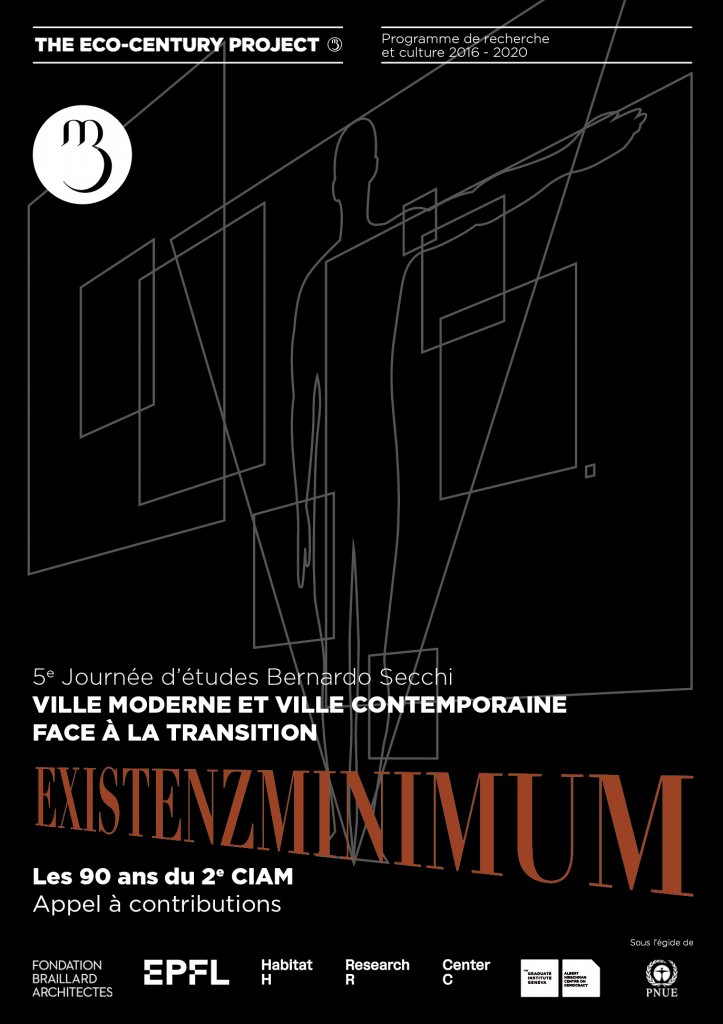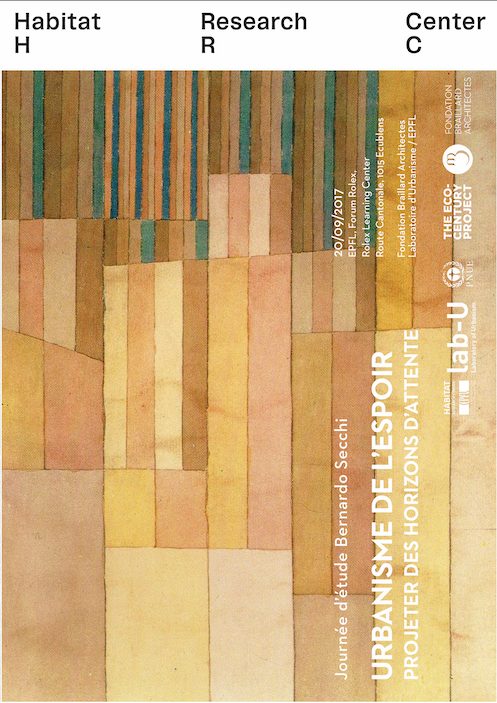BERNARDO SECCHI DAYS

© Fondation Braillard
The Study Days are dedicated to the memory of Bernardo Secchi, who was Professor at the School of Architecture in Geneva and an internationally known urbanist who, with his books and projects, has always vehiculated a critical approach and the need of deep understanding and research on urban habitats.
2019
Existenzminimum. 90 Years from 2nd CIAM

The fifth Bernardo Secchi Day of Study is jointly organized by three entities: the Braillard Architects Foundation, in the framework of its Culture and Research Programme The Eco-Century Projet ®; the Habitat Research Centre of the Swiss Federal Institute of Technology in Lausanne; and the Albert Hirschman Centre on Democracy of the Graduate Institute of International and Development Studies in Geneva. This day continues the momentum established during the critical commemoration of the Sarraz Declaration. Ninety years after the Second International Congress of Modern Architecture (CIAM, Frankfurt am Main, 1929), which set the goal of a minimum but dignified standard of living for urban populations under the term “existenzminimum”, we find ourselves in the midst of a debate on the conditions necessary for the habitability of urban territories. On the one hand, because the recurrent social demands are a reminder that no rights are guaranteed without citizen vigilance; on the other hand, because the ceiling of resources to be consumed on the “day of overspending” now meets with a broad consensus both among specialists and in civil society; finally, because the city and the local level now constitute the space in which it is possible to act to revitalize our democracies. Thus, the art of urban planning, closely linked to the art of governance, is confirmed as the search for a balance, a golden mean, an optimal spatial framework that could be described as “existenzoptimum”, as demonstrated in the recent work of the English economist Kate Raworth.
2018
Modern City and Contemporary City Facing the Transition

The 90th anniversary of La Sarraz Declaration would have gone unnoticed if Bernardo Secchi were still with us. Not because of nostalgia, and not to pro-long a battle against an enemy to be definitively destroyed. Rather, it is an occasion for critical reflection on the distances, the inadequacies, the abuses, or on the contrary, the trajectories and continuities between the Modern City and the Contemporary City that remain open in a time of ecological, economic and social transition. In view of this foundational moment for the 20th century avant-gardes, the Working Seminar intends to focus on our own transition characterised by what Bernardo Secchi ten years ago described as an “absence of clear and integral vision of the urban future, leading to incoherent choices regarding new design projects”: the context in which issues of ecological compatibility, sustainability and resilience oblige architects, planners and stakeholders to question anew the main principles of contemporary design.
2017
Urbanism of Hope. Designing horizons of expectations

At the core of this Seminar lied the role of design, namely the design of cities and territories as an agent in the social construction of hope. “Our forecasts are extremely limited, as limited are, in a pluralist society, the individual and collective capability to coordinate the actions of the different subjects that contribute to the city construction, transformation and modification. Who builds ‘scenarios’ is a disenchanted person that has no certainty and, for this reason, only proposes possible lines of reasoning.” (B. Secchi, 1996). A project aims to change the reality. For this reason it explores the frontier of what is concretely possible in its multiple dimensions: institutional, economic, technical and political. Any project is accompanied by an act of hope. “What may I hope?” The third interrogation of Immanuel Kant’s Critique of Pure Reason admittedly designates a controversial field. This is particularly true in a period, such as the contemporary one, of drastic social, economic and environmental mutations; of deep re-adjustment of values and critiques to simplified ideas of progress. Indeed, those fundamental social long-term aspirations fuelled by modern urbanism, engineering and architecture, in other terms the “great modernization project”, are not widely shared any more.